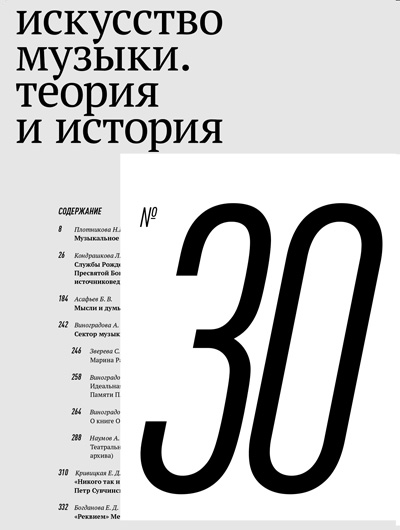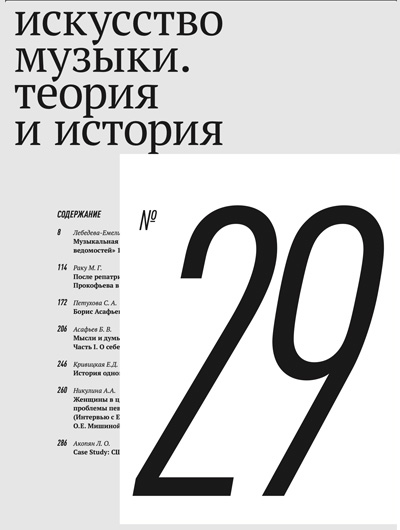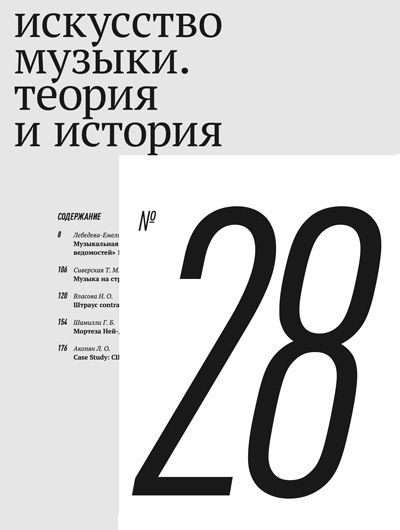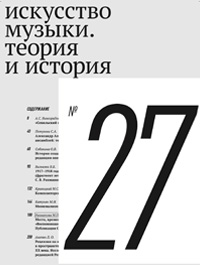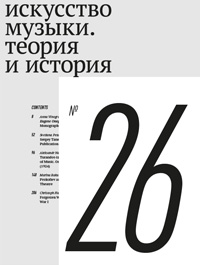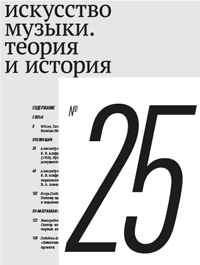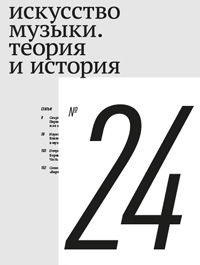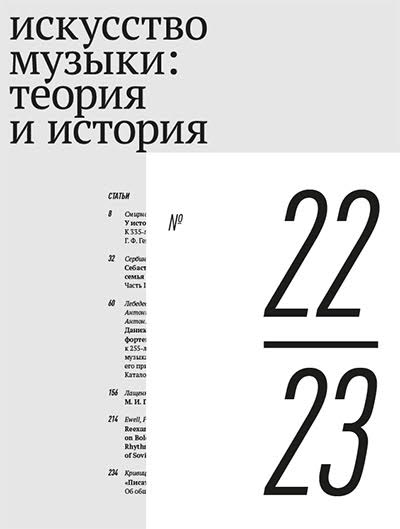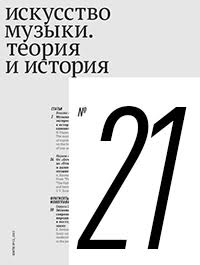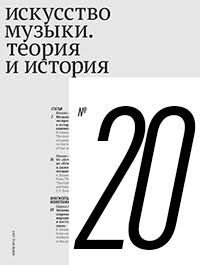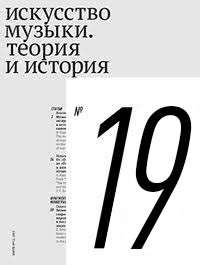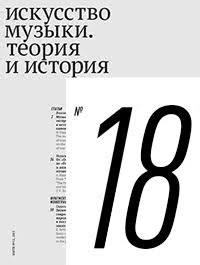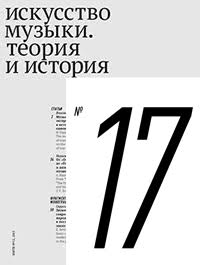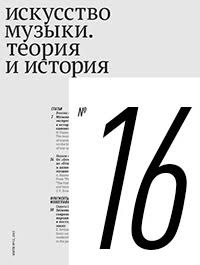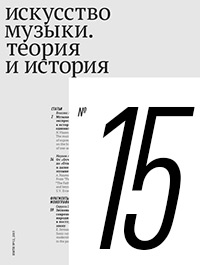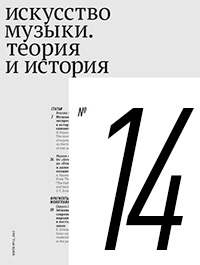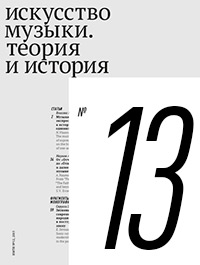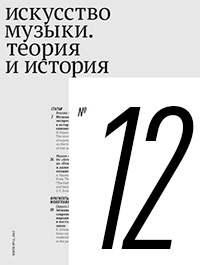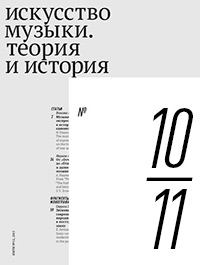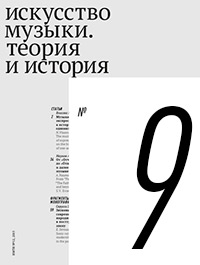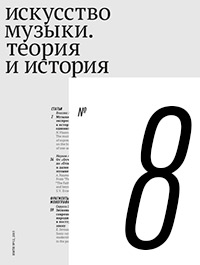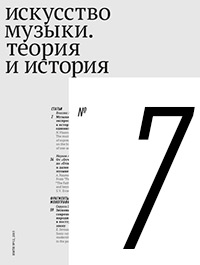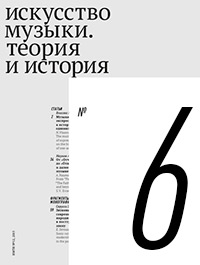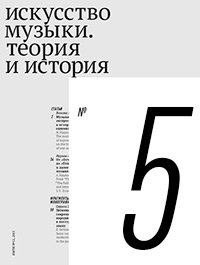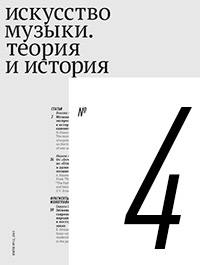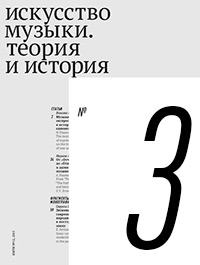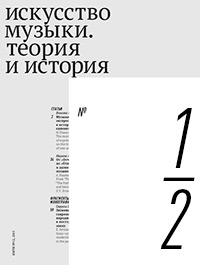2015 ¹ 13
The present issue is dedicated to the materials of the conference ‘Musorgsky and Rimsky-Korsakov in the World Art Culture’, which took place at the State Institute for Art Studies on 19 November 2014 as a part of the Musicological Forum-2014, organized by the Russian Gnesin Academy of Music in cooperation with the State Institute for Art Studies. The extremely informative one-day conference was timed to two anniversaries: Musorgsky’s 175th and Rimsky-Korsakov’s 170th.
The opera-ballet Mlada was composed in 1872 in response to a commission from the director of the imperial theaters, Stepan Gedeonov. Five composers — César Cui, Modest Musorgsky, Nikolay Rimsky-Korsakov, Alexander Borodin, and Ludwig Minkus — participated in the composition, but the work remained unfinished. Now a scholarly edition of the surviving parts of Mlada is forthcoming. The American publisher A–R Editions in Middleton, Wisconsin, has accepted an edition by the author of this article. The volume is scheduled for publication in 2015. The difficulties encountered in the edition’s preparation are discussed. Since some scenes are considered lost and others were never composed, it turned out to be impossible to produce a complete, continuous version satisfying scholarly standards, that it, without freely composing the lacking music anew. It is explained why two musical numbers have been reconstructed — Cui’s trio from act 1 and Borodin’s Chorus of the Idolaters from act 4 — but not any others, such as Musorgsky’s Chernobog scene from act 3. The circumstances leading to the exclusion of Minkus’s ballet music are also discussed.
The article explores the historiosophic conception of the Russian schism in Musorgsky’s Khovanshchina and discusses the relation between the opera’s composition and dramaturgy and the antique model of tragedy.
The article deals with some aspects of the musical dramaturgy and composition of Rimsky-Korsakov’s The Tsar’s Bride. The author calls in question the view, established among music critics and scholars, that the opera’s composition is of the ‘number’ type and uses ‘olden’ musical forms. The dramaturgic parallelisms between The Tsar’s Bride and classical Russian operas are regarded from the perspective of Rimsky-Korsakov’s creative dialogue with the operatic tradition of his time.
Though Boris Godunov is a recognized classic, the history of the ‘discovery’ and stage production of its first version (1869) still remains largely unexplored. This applies especially to the period preceding P. A. Lamm’s publications in the 1920s. The article explores the early history of the research devoted to the first version of Boris Godunov and throws light on the version’s stage history.
The article’s first ‘episode’ deals with N. A. Rimsky-Korsakov’s environment during his studies at the Marina Academy and his circumnavigation. The second ‘episode’ is dedicated to M. P. Musorgsky’s funerals as reflected in the diaries and drawings of I. F. Tyumenev (an archive source).
The article examines the letters of N. A. Rimsky-Korsakov’s wife Nadezhda Nikolayevna to her relatives and friends, to Russian artists and writers, and to foreign musicians. These documents not only provide a new information about the great composer’s life and work, but also make more perceptible the emotional context of many events.
The article’s purpose is to establish the authorship of the Easter chant An Angel Cried Out, previously ascribed to Musorgsky. The authors suppose Nikolay Matveyevich Uvarov, a composer from Orenburg, to be a likely author of the work; facts of his biography are disclosed.
The article presents a detailed analysis of Rimsky-Korsakov’s romance op. 40 No. 4 ‘I waited for you in a cave’. Maykov’s ‘anthological’ verse brought to life an interesting and artistically justified experiment — a composition in ancient modes with the use of a peculiar technique of rows, first developed in Russia by Rimsky-Korsakov.
The author’s aim is to establish the position of Rimsky-Korsakov’s Concert Fantasy on Russian Themes op. 33 both in the history of the development of the genre of one-movement instrumental piece in Russia and in the whole context of Rimsky-Korsakov’s oeuvre.
The present article is the examination of similar musical themes of two choruses, namely Choeur des Eumenides from Iphigénie en Tauride by Gluck and The Destruction of Sennacherib by Musorgsky. The main subjects of consideration are how could Musorgsky familiarize with work by the famous operatic reformer, and why Choeur des Eumenides drew his special attention.
The article explores the libretto of The Legend of the Invisible City of Kitezh in the context of human sciences, history and folklore studies of both comparative and ethnographic schools. The decisive influence of A. N. Veselovsky’s treatise South Russian Folk Epic on the opera is revealed. The ‘Russian Parsifal’ has borrowed from there the choice of folk texts as well as their treatment, the constructive method of analyzing the dynamic plot structure and its motifs, the very idea of a comparative study and the concept of dialogue between cultures. It also appears that an ethnographic approach to folk texts did not correspond to the conception of a mystery play. In its turn, the libretto written by V. I. Bel’sky influenced the future human sciences due to its novel interpretation of the Kitezh legend and its historical background.
